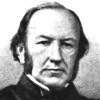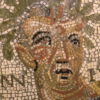You need not hesitate to say aloud that my adversary is wrong and that he is an imbecile.
[Vous ne devez pas hésiter à dire hautement que mon adversaire a tort et que c’est un imbécile.]
Claude Bernard (1813-1878) French physiologist, scientist
Cahier de Notes (1860) [tr. Hoff / Guillemin / Guillemin (1967)]
(Source)
Quotations about:
admission
Note not all quotations have been tagged, so Search may find additional quotes on this topic.
ELMIRE: However high the passion which inflames us,
Still, to confess its power somehow shames us.[Quelque raison qu’on trouve à l’amour qui nous dompte,
On trouve à l’avouer toujours un peu de honte.]Molière (1622-1673) French playwright, actor [stage name for Jean-Baptiste Poquelin]
Tartuffe, or the Hypocrite [Le Tartuffe, ou L’Imposteur], Act 4, sc. 5 (1669) [tr. Wilbur (1963)]
(Source)
On women modestly protesting against the advances of lovers.
(Source (French)). Alternate translations:Whatever Reason we may find for the Passion that subdues us, we shall always be a little ashm'd to own it.
[tr. Clitandre (1672)]Whatever reason we may find for the passion that subdues us, we always feel some shame in owning it.
[tr. Van Laun (1876)]Whatever reasons we may find to justify the love that conquers us, there is always a certain shame attached to the avowal of it.
[tr. Wall (1879)]Whatever gratification we may find for the passion that subdues us, we shall always be rather ashamed to own it.
[tr. Mathew (1890). 4.4]Whatever reasons we may find for the love which conquers us, there is always a little shame in the avowal of it.
[tr. Waller (1903)]Whatever cause we find to justify
The love that masters us, we still must feel
Some little shame in owning it.
[tr. Page (1909)]Even though overmastered by our feelings,
We always find it shameful to admit them.
[tr. Bishop (1957)]However strong and justified our flame,
We never can admit it without shame.
[tr. Frame (1967)]No matter how much love persuades us,
we always feel a tiny bit of shame.
[tr. Steiner (2008)]
If thou wilt be cured of thy Ignorance, confess it.
Thomas Fuller (1654-1734) English physician, preacher, aphorist, writer
Introductio ad Prudentiam, Vol. 1, # 84 (1725)
(Source)
There’s a reason narcissists don’t learn from mistakes and that’s because they never get past the first step, which is admitting that they made one.
Robert Hogan (b. 1937) American psychologist
In Jeffrey Kluger, The Narcissist Next Door, ch. 6 (2014)
(Source)
A candid admission of a blunder is refreshing and not often heard in human affairs. It is the saint alone who is large-minded enough to think and speak in this way. This is part of his authenticity.
Thomas Dubay (1921-2020) American Catholic priest, author, spiritual director
Authenticity: A Biblical Theology of Discernment, Part 2, ch. 6 (1977)
(Source)
He who has conquered is not conqueror
Unless the conquered one confesses it.[Qui vincit non est victor nisi victus fatetur.]
That’s not a nuts thing, that’s a “humans hate to admit error even as they stand there, black and smoldering, with the stub of a cigarette in one hand, in the middle of a wide crater containing them and the remains of a sign that once read ‘DANGER: VOLATILE EXPLOSIVES'” thing. It’s pretty universal.
James Nicoll (b. 1961) Canadian reviewer, editor
“Proposal for a new FAQ or two,” rec.arts.sf.written, Usenet (10 Jun 2005)
(Source)
None but the well-bred man knows how to confess a fault, or acknowledge himself in error.
Benjamin Franklin (1706-1790) American statesman, scientist, philosopher, aphorist
Poor Richard (1738 ed.)
(Source)










